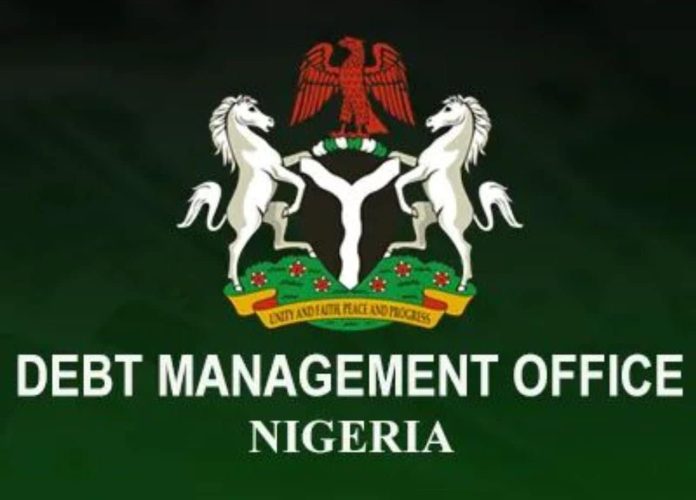In a startling revelation, Nigeria’s public debt has surged by 48.58 percent, climbing from N97.34 trillion at the end of 2023 to N144.67 trillion as of December 2024. The latest report released by the Debt Management Office (DMO) paints a worrying picture of the nation’s financial health, as both external and domestic borrowing continue to propel the debt to unprecedented levels.
A closer analysis of the figures reveals that Nigeria’s debt expanded by an additional N47.32 trillion on a year-on-year basis. This dramatic increase underscores a fiscal environment where borrowing has escalated sharply to meet various financial obligations. The DMO report highlights that while some level of borrowing is necessary to finance developmental projects, the current trajectory raises serious questions about the sustainability of the nation’s fiscal policies.
Adding to the concern, the report notes a quarter-on-quarter rise of 1.65 percent, with the debt increasing from N142.32 trillion at the end of September 2024 to the current N144.67 trillion. This steady upward trend indicates that the nation’s debt profile is not only growing rapidly on an annual basis but is also showing persistent incremental increases over shorter periods.
The alarming rise in the debt is largely driven by both external and domestic borrowing:
Nigeria’s external debt soared by 83.89 percent, reaching N70.29 trillion in December 2024 from N38.22 trillion in the same period of the previous year. A breakdown of this external debt reveals that the federal government is responsible for N62.92 trillion (approximately $40.98 billion), while states and the Federal Capital Territory (FCT) account for N7.37 trillion (about $4.80 billion). This dramatic spike points to an increased reliance on international borrowing, which may expose the nation to currency risks and global market fluctuations.
Similarly, domestic borrowing has seen a substantial increase of 25.77 percent, with the total domestic debt reaching N74.38 trillion in December 2024 compared to N59.12 trillion at the end of December 2023. Within this segment, the federal government holds a significant portion at N70.41 trillion (roughly $45.86 billion), while the remaining N3.97 trillion (approximately $2.58 billion) is held by states and the FCT. The growing domestic debt signals an increased dependency on internal financial markets to fund governmental activities, raising concerns about potential impacts on local investors and market stability.
The ballooning debt profile has raised alarms among financial experts and policymakers. Dr. Muda Yusuf, the Chief Executive Officer of the Centre for Promotion of Private Enterprises, was particularly vocal in his criticism. He highlighted that the rapid accumulation of debt is occurring despite Nigeria’s substantial infrastructural deficits. According to Dr. Yusuf, the focus on borrowing, without corresponding investments in critical infrastructure, could stymie economic growth and burden future generations with unsustainable fiscal liabilities.
The current debt trajectory poses significant policy dilemmas for the Nigerian government. While borrowing remains a tool for financing urgent developmental projects and stabilizing the economy in turbulent times, the reliance on both external and domestic loans has reached a level that experts warn could jeopardize fiscal stability. The situation demands a delicate balancing act—continuing necessary investments while simultaneously implementing stringent fiscal reforms to manage and eventually reduce the debt burden.
Government officials are under increasing pressure to provide clarity on long-term debt management strategies and outline concrete plans to address the infrastructural deficits that continue to plague the country. As policymakers navigate these challenges, the international community and local financial institutions are closely monitoring the developments, aware that Nigeria’s debt sustainability is crucial for the country’s economic recovery and growth.
Nigeria’s escalating public debt, now at N144.67 trillion, is a wake-up call for both the government and the public. The dramatic increases in both external and domestic borrowing have not only amplified the immediate fiscal challenges but also cast a long shadow on the future economic stability of the nation. As experts like Dr. Muda Yusuf call for urgent reforms, the coming months will be critical in determining whether Nigeria can steer its economy away from a path of unsustainable debt and towards a more stable and growth-oriented future.

